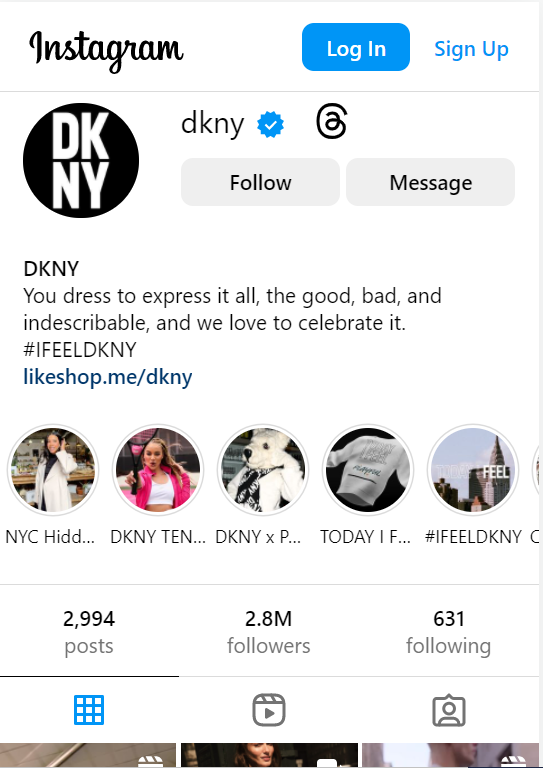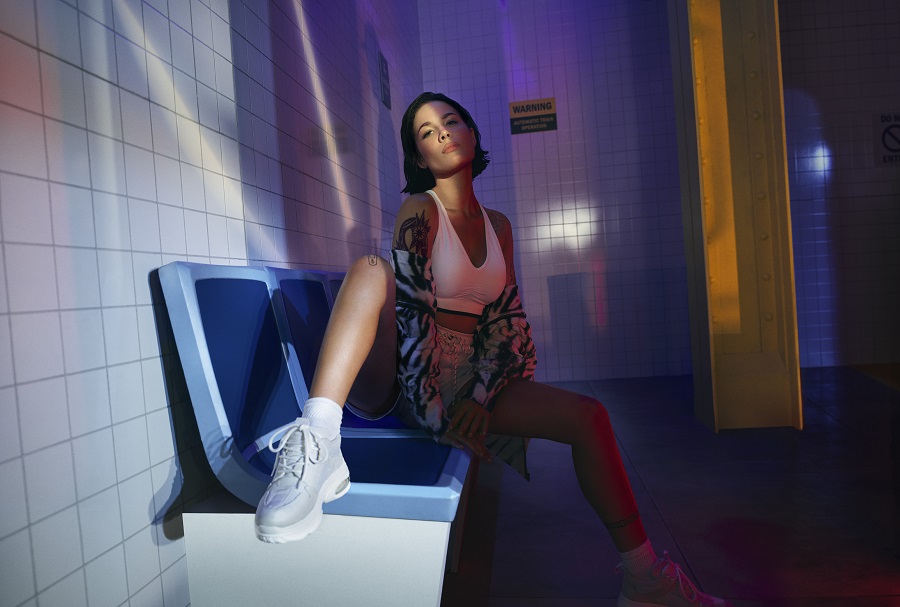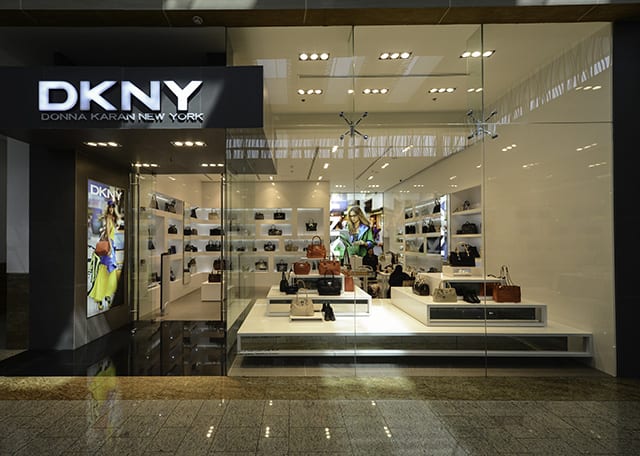Welcome to the dynamic and cosmopolitan world of DKNY, a globally renowned fashion brand that effortlessly blends New York City’s urban energy with modern sophistication. DKNY, an abbreviation for Donna Karan New York, was founded in 1984 by the iconic American fashion designer Donna Karan. With its roots deeply entrenched in the bustling streets of Manhattan, the brand encapsulates the spirit of the city that never sleeps, resonating with individuals seeking contemporary, versatile, and chic apparel and accessories.

The brand is known for its urban, sophisticated, and accessible designs. DKNY’s products include clothing, footwear, accessories, and fragrances.
DKNY was initially launched as a diffusion line of Donna Karan’s eponymous label, but it quickly became a standalone brand. The brand’s target audience is young, urban professionals who are looking for stylish and affordable clothing. DKNY’s designs are often inspired by the city of New York, and they feature clean lines, bold colors, and modern silhouettes.
DKNY has been successful in expanding its global reach in recent years. The brand now has over 200 stores in over 50 countries. DKNY is also available online through its own website and through a variety of other retailers.
Some of the most popular DKNY products include:
- Clothing: DKNY’s clothing line includes a wide variety of items, including dresses, skirts, pants, tops, jackets, and outerwear. The brand’s clothes are known for their flattering fits and comfortable fabrics.
- Footwear: DKNY’s footwear line includes a variety of styles, including sneakers, boots, sandals, and heels. The brand’s shoes are known for their stylish designs and comfortable soles.
- Accessories: DKNY’s accessories line includes a variety of items, including bags, wallets, hats, scarves, and jewelry. The brand’s accessories are known for their trendy designs and high quality.
- Fragrances: DKNY has launched a number of successful fragrances, including Be Delicious, DKNY Women, and DKNY Men. The brand’s fragrances are known for their fresh and modern scents.
DKNY is a popular brand among celebrities and fashion icons. The brand’s clothes have been worn by stars such as Sarah Jessica Parker, Kate Moss, and Rihanna. DKNY is also a popular choice for red carpet events.
DKNY is a successful fashion brand that has been able to appeal to a wide range of consumers. The brand’s stylish and affordable designs have made it a popular choice for young, urban professionals around the world.
Marketing Strategies of DKNY
DKNY employs a variety of marketing strategies to position itself as a leading fashion brand, connect with its target audience, and maintain its relevance in the competitive fashion industry. Let’s delve into the marketing strategies of DKNY in detail:
Brand Identity and Positioning: DKNY’s marketing strategy revolves around a strong brand identity that is synonymous with New York City’s urban lifestyle. The brand positions itself as the go-to destination for contemporary, versatile, and chic fashion that embodies the essence of the bustling metropolis. DKNY’s brand messaging emphasizes its commitment to creating clothing and accessories that cater to the multifaceted roles of the modern urban woman. The brand’s tagline, “New York Style,” reinforces its connection to the city and its influence on the brand’s design aesthetic.
Captivating Advertising Campaigns: DKNY invests in visually striking and captivating advertising campaigns that effectively convey its brand image and showcase its latest collections. These campaigns often feature top models, renowned celebrities, or influential personalities in iconic New York City settings, such as Times Square or Central Park. The imagery and messaging in these campaigns aim to evoke the cosmopolitan energy of the city while highlighting the brand’s contemporary and sophisticated designs.
Social Media and Digital Marketing: DKNY maintains an active and engaging presence on various social media platforms. The brand’s Instagram, Facebook, Twitter, and YouTube accounts are platforms for sharing compelling content, such as product visuals, behind-the-scenes glimpses, and lifestyle shots featuring DKNY products in real-life settings. DKNY effectively uses social media to connect with its target audience, build a community of brand enthusiasts, and create excitement around new collections and collaborations.

Collaborations and Partnerships: DKNY strategically collaborates with artists, influencers, and other brands to create exclusive capsule collections and limited-edition products. These partnerships allow DKNY to tap into new markets, attract a diverse audience, and generate buzz around its brand. Collaborations with influencers and celebrities also help increase brand visibility and credibility among their followers. DKNY’s collaborations often blend the brand’s urban aesthetic with the unique perspectives of the collaborators, creating sought-after and collectible pieces.

Fashion Events and Runway Shows: DKNY actively participates in major fashion events, such as New York Fashion Week, where it showcases its latest collections through runway shows and presentations. These events not only generate media coverage and industry buzz but also reinforce the brand’s presence in the fashion world. DKNY’s runway shows often reflect the urban and dynamic spirit of New York City, further establishing its connection to the city’s fashion culture.
Omni-channel Retail Strategy: DKNY employs an omni-channel retail approach to ensure a seamless shopping experience for its customers. The brand operates its own brick-and-mortar stores in key fashion capitals and major cities worldwide. These stores feature contemporary and inviting interiors that align with DKNY’s brand identity, creating a unique and immersive shopping environment. Additionally, DKNY’s e-commerce platform provides a user-friendly interface for online shoppers, enabling them to browse and purchase products from anywhere in the world.
Influencer Marketing and User-Generated Content: DKNY collaborates with influencers, fashion bloggers, and content creators to showcase its products in real-life settings. These influencers share their DKNY experiences and style inspirations with their followers, amplifying the brand’s reach and connecting with younger, digitally-savvy audiences. By leveraging user-generated content, DKNY fosters a sense of community and authenticity, as customers proudly share their DKNY looks and experiences on social media.
Personalization and Customer Engagement: DKNY places a strong emphasis on personalized customer experiences. The brand offers services like styling consultations and personalized product recommendations, tailoring the shopping experience to individual preferences. DKNY engages with its customers through email newsletters, loyalty programs, and feedback surveys, aiming to build lasting relationships and gather valuable insights for continuous improvement. The brand’s commitment to exceptional customer service further strengthens its customer loyalty.
Brand Extension and Fragrances: DKNY has successfully extended its product offerings beyond apparel and accessories. The brand’s fragrance line features scents that embody the energy and essence of New York City. The fragrances are often packaged in stylish and contemporary bottles, reflecting the brand’s design aesthetics. DKNY’s fragrance collections appeal to consumers who seek to immerse themselves in the urban allure of the city through scent.
DKNY’s marketing strategies are centered around its urban and contemporary brand identity, captivating advertising, social media engagement, collaborations, and personalized customer experiences. By continuously innovating, embracing the spirit of New York City, and connecting with its diverse audience, DKNY continues to be a dynamic and influential force in the fashion industry.
Marketing Mix of DKNY
The marketing mix, also known as the 4Ps (Product, Price, Place, Promotion), is a fundamental marketing strategy framework that outlines the tactical elements a company uses to effectively promote its products or services. Let’s explore the marketing mix of DKNY in detail:
Product
DKNY’s product strategy focuses on offering contemporary and stylish apparel, accessories, and fragrances that cater to the modern urban lifestyle. The brand’s product offerings include:
- Apparel: DKNY’s clothing collections feature a mix of ready-to-wear pieces that combine chic sophistication with a touch of urban edge. The brand offers a wide range of apparel, including dresses, tops, trousers, skirts, blazers, outerwear, and athleisure wear.
- Accessories: DKNY’s accessory line includes handbags, wallets, backpacks, belts, scarves, and hats. These accessories are designed to complement the brand’s apparel and add a fashionable finishing touch to any outfit.
- Fragrances: DKNY offers a range of fragrances that capture the spirit of New York City. The fragrance collections include eau de parfum and eau de toilette options for both men and women, each reflecting the brand’s contemporary and cosmopolitan identity.
- Eyewear: DKNY’s eyewear collection features a variety of stylish sunglasses and optical frames, showcasing the brand’s modern and urban design aesthetic.
- Home Décor: DKNY extends its product offerings to include home décor items such as bedding, towels, and home accessories. These products embody the brand’s contemporary and sophisticated style, bringing the essence of New York City into the home.
Price
DKNY’s pricing strategy positions it as an accessible luxury brand, offering contemporary fashion at a mid-range price point. The brand’s pricing reflects its commitment to delivering stylish and quality products to a broad consumer base. While some items, such as limited-edition or exclusive collaborations, may be priced higher, the majority of DKNY’s products are designed to appeal to the urban fashion-conscious consumer seeking contemporary style without a premium price tag.
Place (Distribution)
Distribution plays a key part in DKNY’s marketing mix given its global presence and extensive network of retail stores. Over 90 countries carry the brand, making it easily accessible to customers worldwide. The majority of revenue is generated through wholesale channels such as department stores and specialty boutiques. However, the brand continues to increase its own retail presence by opening freestanding stores located near upscale department stores or high streets. As a result, DKNY products can now be found under one roof instead of scattered amongst a variety of competitors’.
DKNY’s e-commerce platform plays a vital role in its distribution strategy, offering customers a convenient and seamless online shopping experience. The official DKNY website allows customers from around the world to explore the brand’s product range and make purchases with ease.
Promotion
DKNY’s promotion strategy revolves around its urban identity, contemporary designs, and captivating advertising campaigns. Some key elements of the brand’s promotional mix include:
- Advertising: DKNY invests in visually engaging advertising campaigns that showcase its latest collections and reflect the brand’s connection to New York City. These campaigns feature iconic city landmarks, diverse models, and influential figures to resonate with its target audience.
- Social Media and Influencers: DKNY maintains a strong presence on social media platforms, particularly Instagram, Facebook, and Twitter. The brand leverages influencer marketing to extend its reach and engage with a younger, digitally-savvy audience. Influencers share DKNY products in real-life settings, amplifying the brand’s messaging.
- Fashion Events and Runway Shows: DKNY participates in major fashion events, such as New York Fashion Week, where it presents its latest collections through runway shows. These events generate media coverage, industry buzz, and exposure to fashion enthusiasts and industry insiders.
- Collaborations and Partnerships: DKNY collaborates with artists, designers, and other brands to create exclusive capsule collections. These collaborations create excitement, attract new audiences, and reinforce the brand’s contemporary image.
- Loyalty Programs: DKNY may implement loyalty programs to reward repeat customers, offering exclusive benefits, personalized offers, and early access to new collections.
In conclusion, DKNY’s marketing mix emphasizes contemporary and stylish product offerings, accessible pricing, selective distribution channels, and engaging promotional strategies. By leveraging its urban identity and connection to New York City, DKNY continues to attract a diverse and global audience, positioning itself as a prominent fashion brand in the competitive market.
Also Read: Marketing Strategies and Marketing Mix of Desigual
To read more content like this, subscribe to our newsletter






